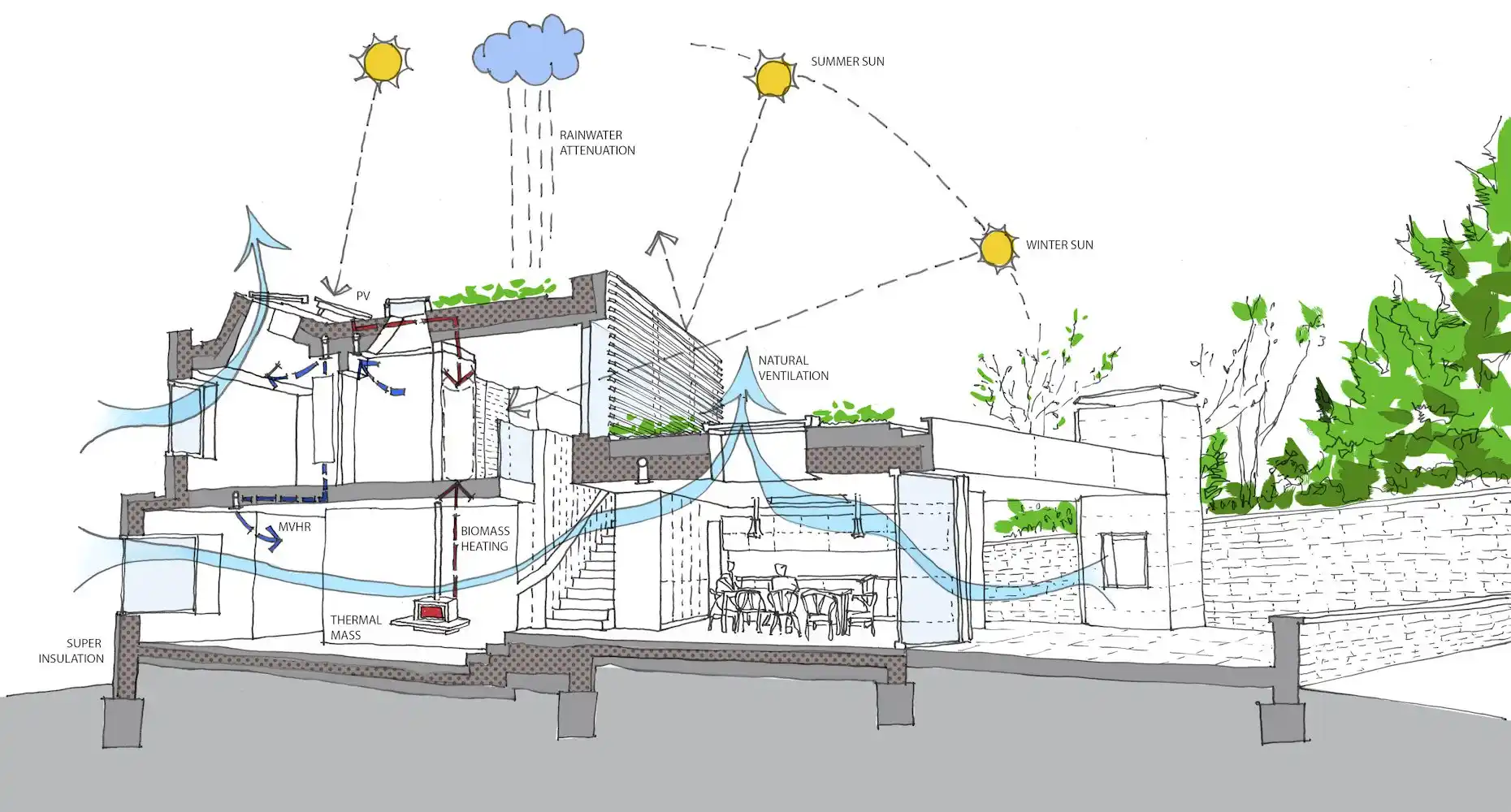Basic Principles of Sustainable Architecture

Basic Principles of Sustainable Architecture
Sustainable architecture refers to the design and construction of buildings that have minimal negative impacts on the environment, aim to improve human life quality, and conserve natural resources. The basic principles of sustainable architecture include:
Energy Efficiency: One of the most critical principles of sustainable architecture is energy efficiency. Designing buildings to consume the least amount of energy possible, including the use of high-efficiency heating and cooling systems, proper insulation, and the utilization of renewable energy sources such as solar power.
Sustainable Building Materials: Using materials that have less environmental impact and are recyclable. Choosing local materials can also reduce energy consumption in transportation and support the local economy.
Water Management: Managing water consumption and using systems for water collection and recycling to reduce the use of fresh water resources. This includes using drip irrigation systems, rainwater harvesting, and greywater treatment.
Indoor Air Quality: Maintaining indoor air quality by using non-toxic materials and reducing indoor pollutants such as proper ventilation and high-efficiency ventilation systems.
Climate-Responsive Design: Adapting building design to local climatic conditions to better utilize natural resources and reduce the need for external energy. This includes using natural light, natural ventilation, and designing green spaces.
Waste Reduction: Reducing construction waste and promoting recycling and the reuse of materials during construction. Also, designing buildings to be easily repairable and maintainable.
Flexible Design: Designing buildings that can change and adapt to future needs and can easily change their use, to extend the useful life of the building.
These principles help architects and engineers design buildings that are not only efficient but also environmentally friendly and contribute to sustainable development.